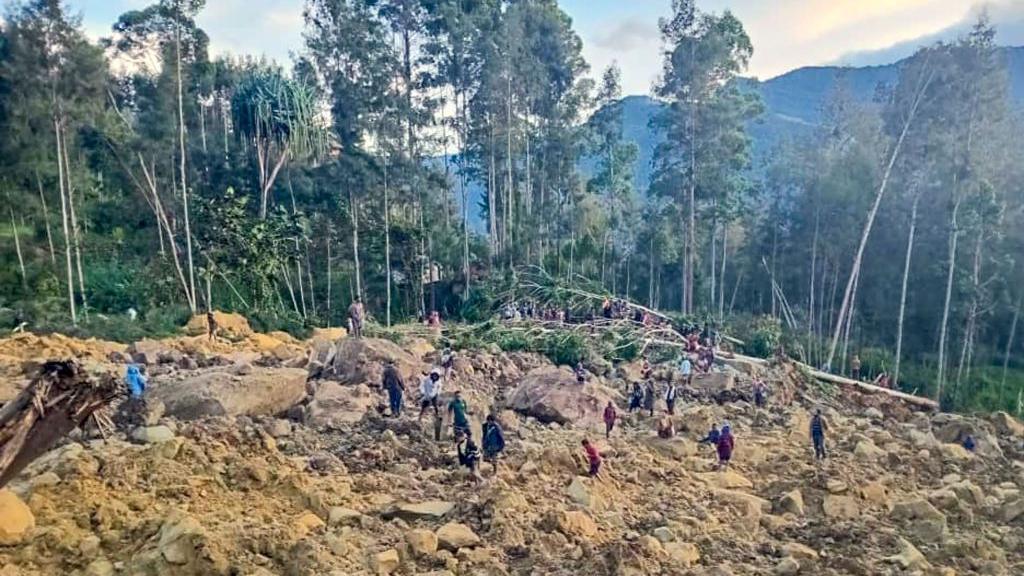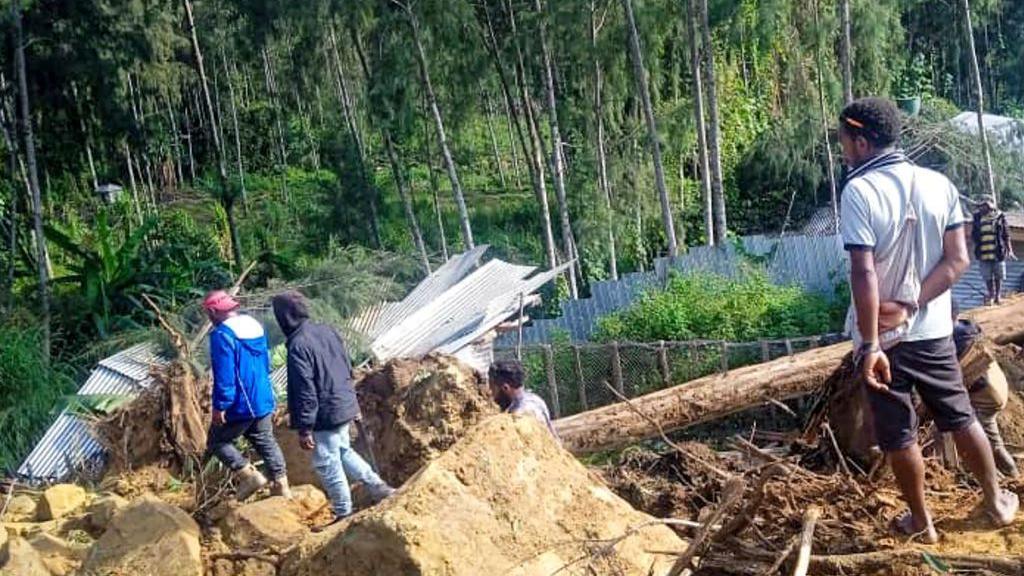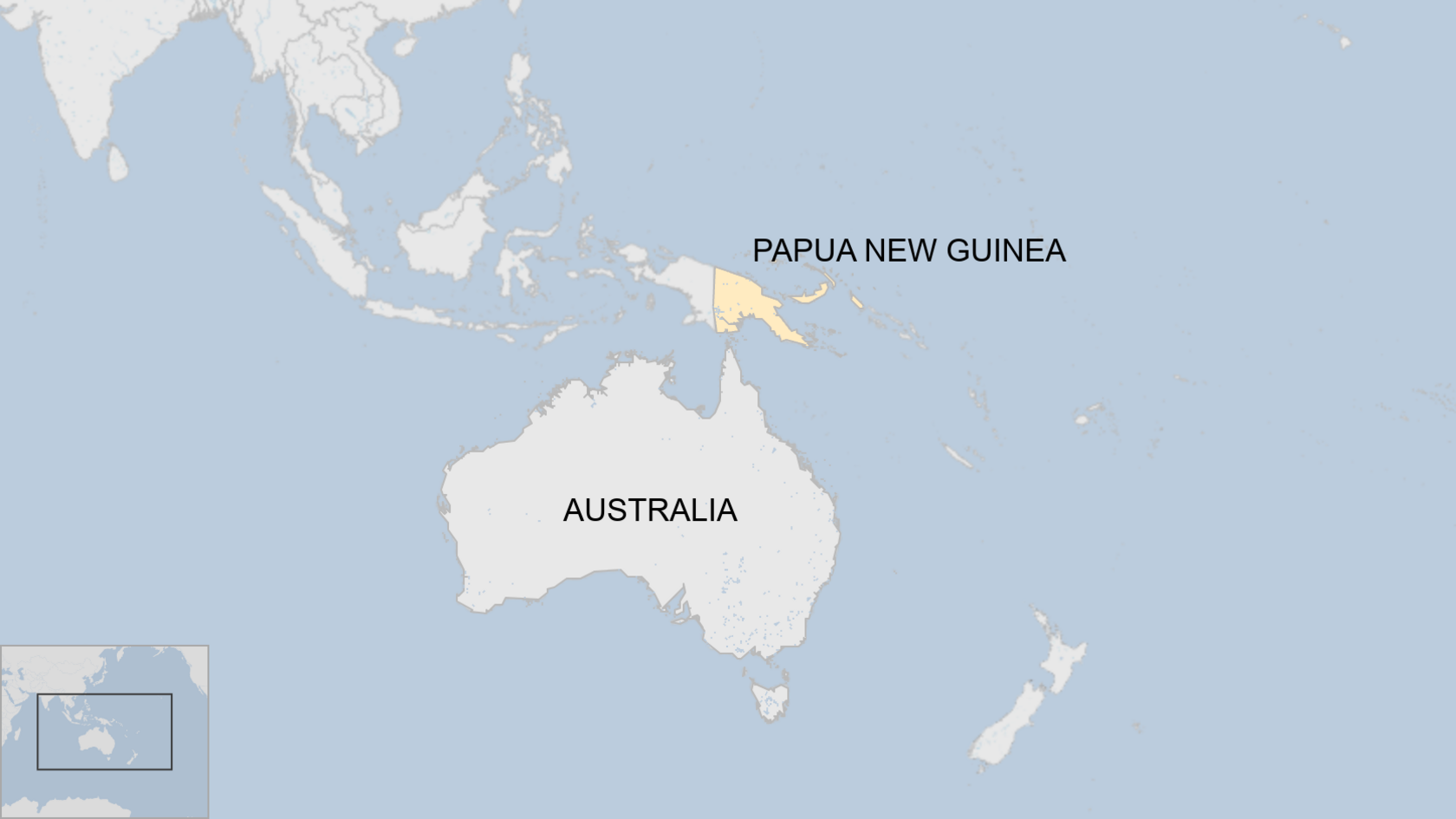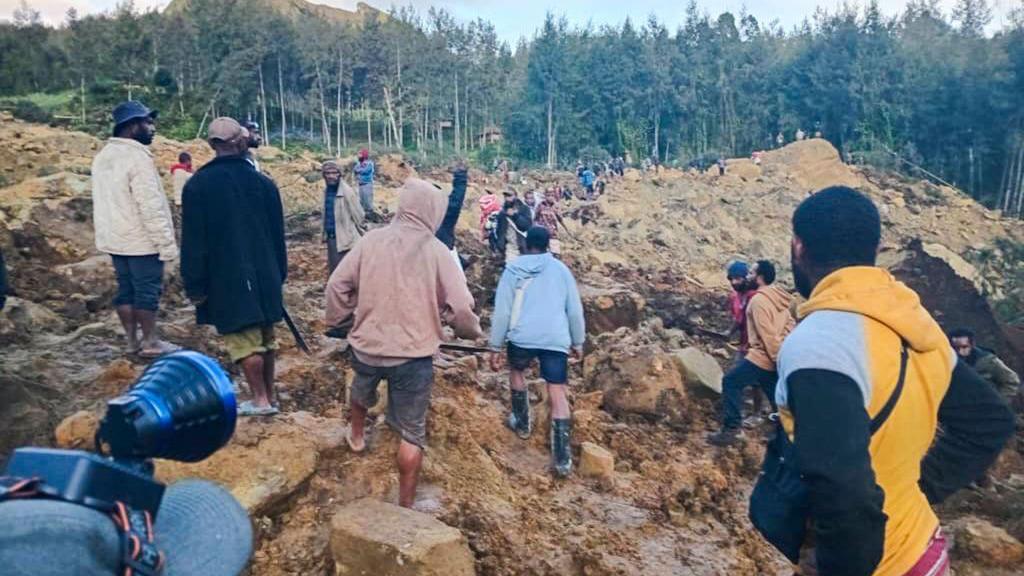Race to rescue villagers trapped after deadly landslide
Papua New Guinea: Many feared dead in landslide
- Published
Emergency services are racing to rescue victims of a massive landslide in Papua New Guinea's isolated Enga province, where hundreds of people are feared to have died.
Relief efforts have been hampered by difficult terrain and damage to main roads. Parts of the affected area are only accessible via helicopter.
But a group of rescuers succeeded in reaching the region, humanitarian agency Care Australia said.
The landslide buried hundreds of homes in the highlands of Enga, in the north of the island nation in the south-west Pacific, at around 03:00 local time on Friday (17:00 GMT on Thursday).
It remained unclear how many people were trapped under the rubble. The UN Resident Coordinator's Office in Papua New Guinea told the BBC that the local emergency response team had so far retrieved three bodies.
It added that the team had also provided emergency medical assistance to six survivors, including one child.
Up to 60 homes were completely destroyed, according to Care Australia. "At present, all the members of these households remain unaccounted for," it added.
There are nearly 4,000 people living in the area where the landslide occurred. But the agency warned that the number affected was "likely to be higher" because of an influx of people escaping tribal conflicts in neighbouring areas.
It added that other villages could also be at risk "if the landslide continues down the mountain".
Amos Akem, an Enga province MP, told the Guardian that based on reports from the ground, "the landslide buried more than 300 people and 1,182 houses".
He said rescue efforts had been hampered by a blocked road connecting the affected Yambali village and the capital.
There is only one highway into Enga Province. The landslide created debris up to 8m deep, affecting more than 200sqkm (77 sq miles) of land "including 150m of the main highway into Enga Province", Care Australia said.
UN official Serhan Aktoprak told the AP news agency that the area affected by the landslide covered the size of three to four football fields.
Some houses in the village were spared by the landslide, Mr Aktoprak said, but "given the scale of the disaster" the death toll could reach over 100.


The operation to reach those affected had been complicated by fears of further landslides.
"The land continues to slide and move, and that makes it dangerous for people to operate," Mr Aktoprak told the AFP news agency.
Residents from surrounding areas described trees and debris from a collapsed mountainside burying parts of the community.
Footage from the scene showed locals pulling bodies from beneath rubble.
'No houses left'
A resident from a nearby village said that when he arrived at the scene of the landslide, "there was no houses [left]".
Speaking to Australian broadcaster ABC, Dominic Lau said it was all "just flat with soil".
"There was nothing, just rocks and soil... there were no people and there were no houses to see," Mr Lau added.
Enga's governor Peter Ipatas told AFP as many as "six villages" had been affected by the landslide, which he described as an "unprecedented natural disaster".
Enga is more than 600km from the country's capital, Port Moresby.
Papua New Guinea's Red Cross Society earlier said an emergency response team made up of officials from the provincial governor's office, police, defence forces, and local NGOs had been deployed to the site.
On Friday, Papua New Guinean Prime Minister James Marape said authorities were responding to the disaster.
He said the government was working with local officials to provide "relief work, recovery of bodies, and reconstruction of infrastructure".
In a statement, US President Joe Biden said the US stood ready to assist, describing Papua New Guinea as a "close partner and friend" of the US.
The US has been strengthening its links in the Asia Pacific region after China signed a security deal with the Solomon Islands in 2022 that allows Beijing to deploy police and military personnel to the country.
Last year, the US signed a defence agreement with Papua New Guinea. The country lies south of Guam, a US territory and a key military hub in the Pacific.

Related topics
- Published24 May 2024
